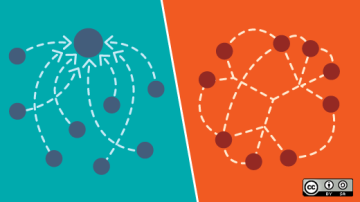
Heidi Hess von Ludewig researches networked workplace creativity from the systems perspective, which means that she examines the relationships of multiple elements within the workplace that influence how individuals and groups perform innovative and creative work. She spent over fifteen years in the software industry performing a variety of roles, from developer to analyst, for Fortune 500 companies before receiving her PhD from North Carolina State University in 2014. Her research informs the work she does day-to-day at Red Hat; program managing, managing change, and ensuring interlock and communication across teams in the IT organization. You can reach her via the contact form.









Authored Comments
Hi Deepak, Thanks for the questions! Tracy and I collaborated on our response. :) We are looking forward to your thoughts! - Heidi
#1
First, we do focus on the manager role in this article so, in that way, the manager is emphasized here, but that doesn't preclude that other relationships and work opportunities experienced in a more matrix environment may have some influence. (Associates and how they influence each other would be a separate article!) However, the role of the manager still has much more authority in many ways others do not. For example (outside of relationships) the manager often has a greater impact on consistent delivery of organizational information, creating shared purpose, supporting exploration of growth opportunities/job change, behaving in a way that shows it’s safe to speak up, discovering ways to help navigate tough situations, your pay/promotion/bonus, employment status, etc. There are so many employee experiences that the manager will touch in some way. It’s almost like that role is the final decision maker on approval of most experiences.
In a matrixed environment, and one where roles cross teams, we all play a role (an acknowledgement to your point, and your questions). You could say that on teams that primarily work together, managers have a lot of influence and on matrixed teams that influence could change. So yes, totally agree that the energy from others can impact your high levels of engagement as well. But the operationalization of work that the manager role performs differently from other roles can make the manager particularly important. (What would be the difference for you between a supportive manager who encourages you to engage the project manager and ask that person for clarity and meaning, vs. an unsupportive manager who doesn’t care if you have a shared purpose with your work team)?
There is actually a lot of data, and we reference a high-level resource in the article from Gallup which often Josh Bersin [a researcher] references in employee experience and engagement reports). So if you are looking for more info, you can search on Josh Bersin or take a look at this resource, which you might find interesting:
Employee Retention report https://cdn2.hubspot.net/hubfs/443262/2018%20Employee%20Retention%20Rep…
YAY! Tracy and I give you our thanks :)